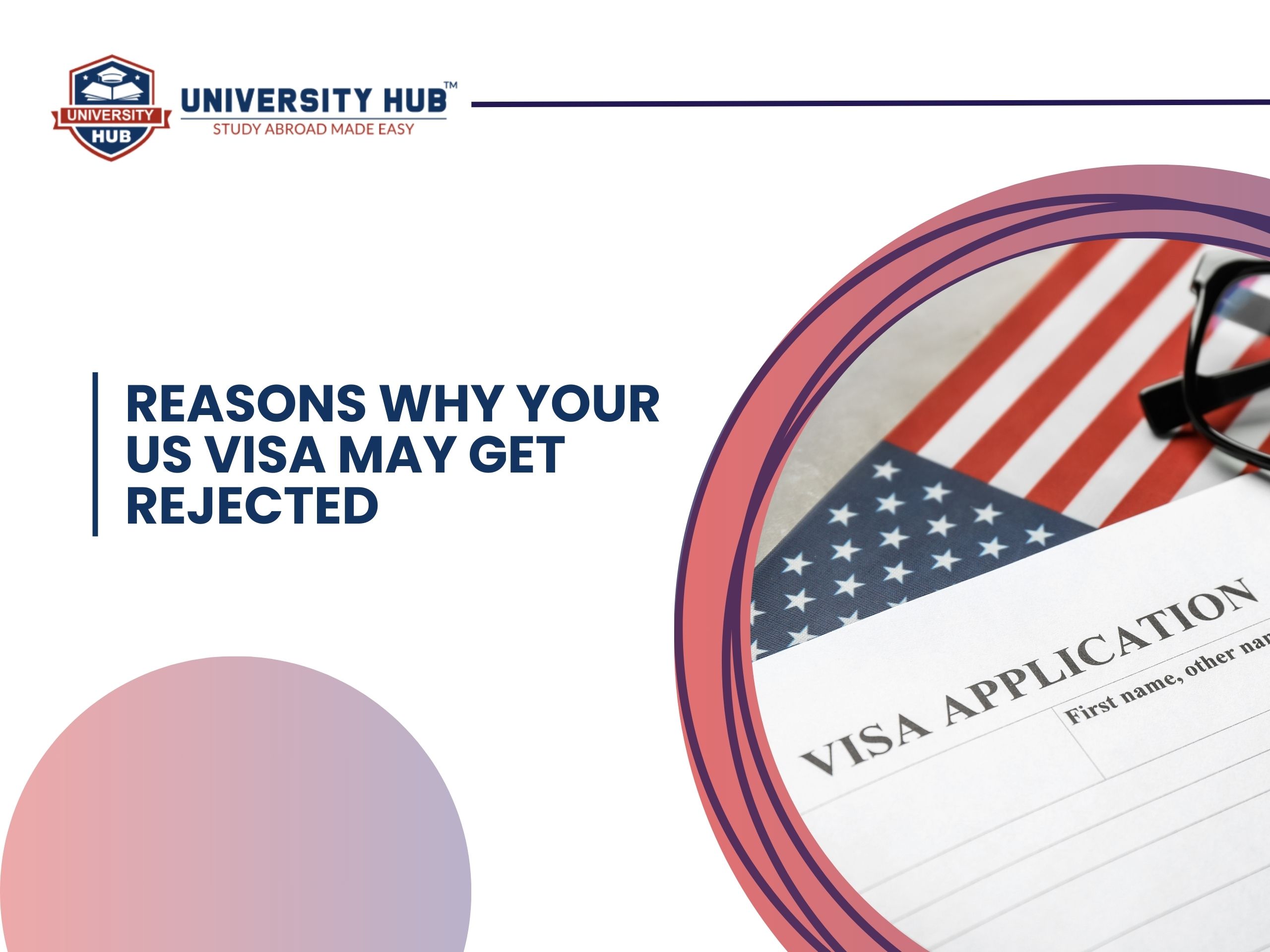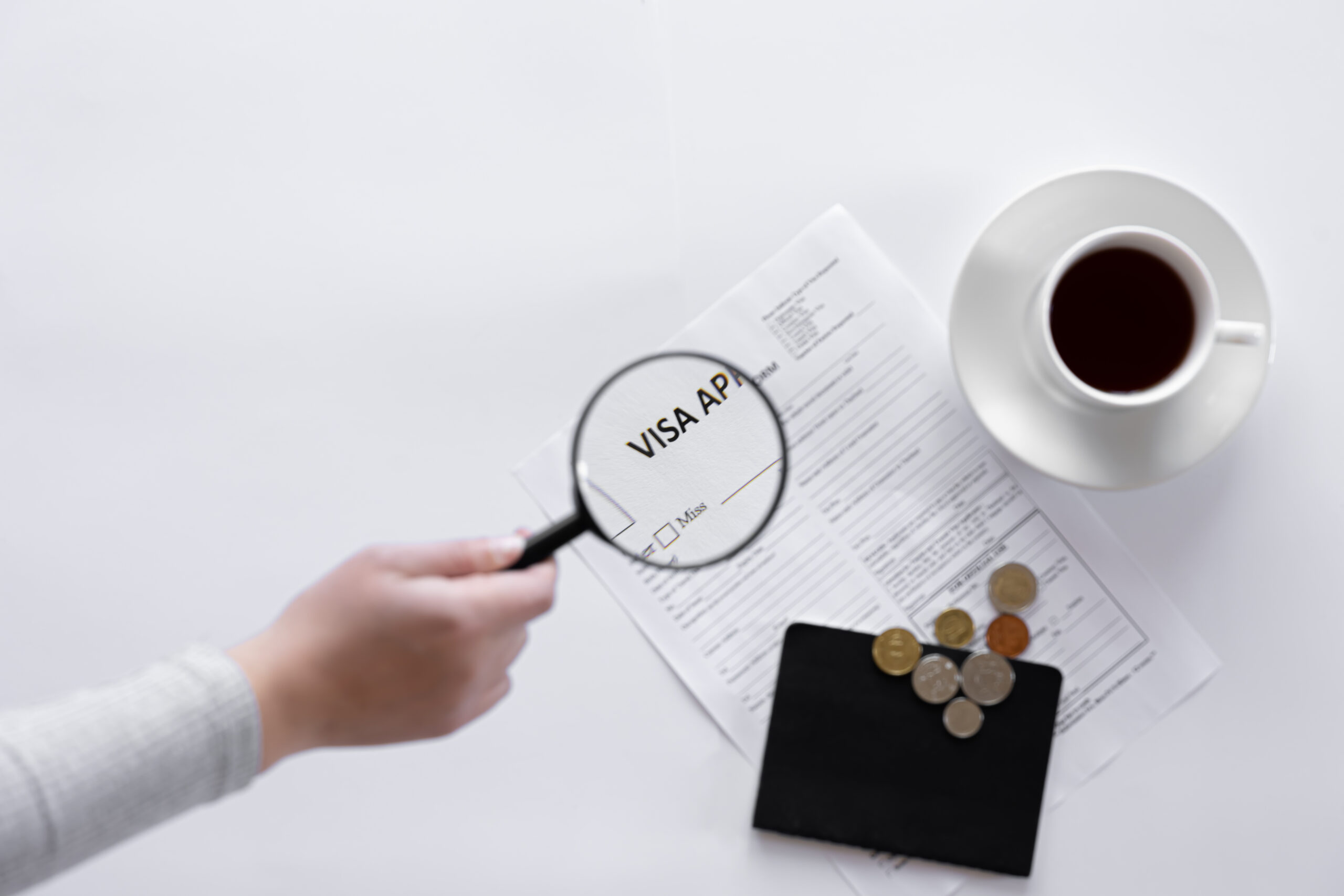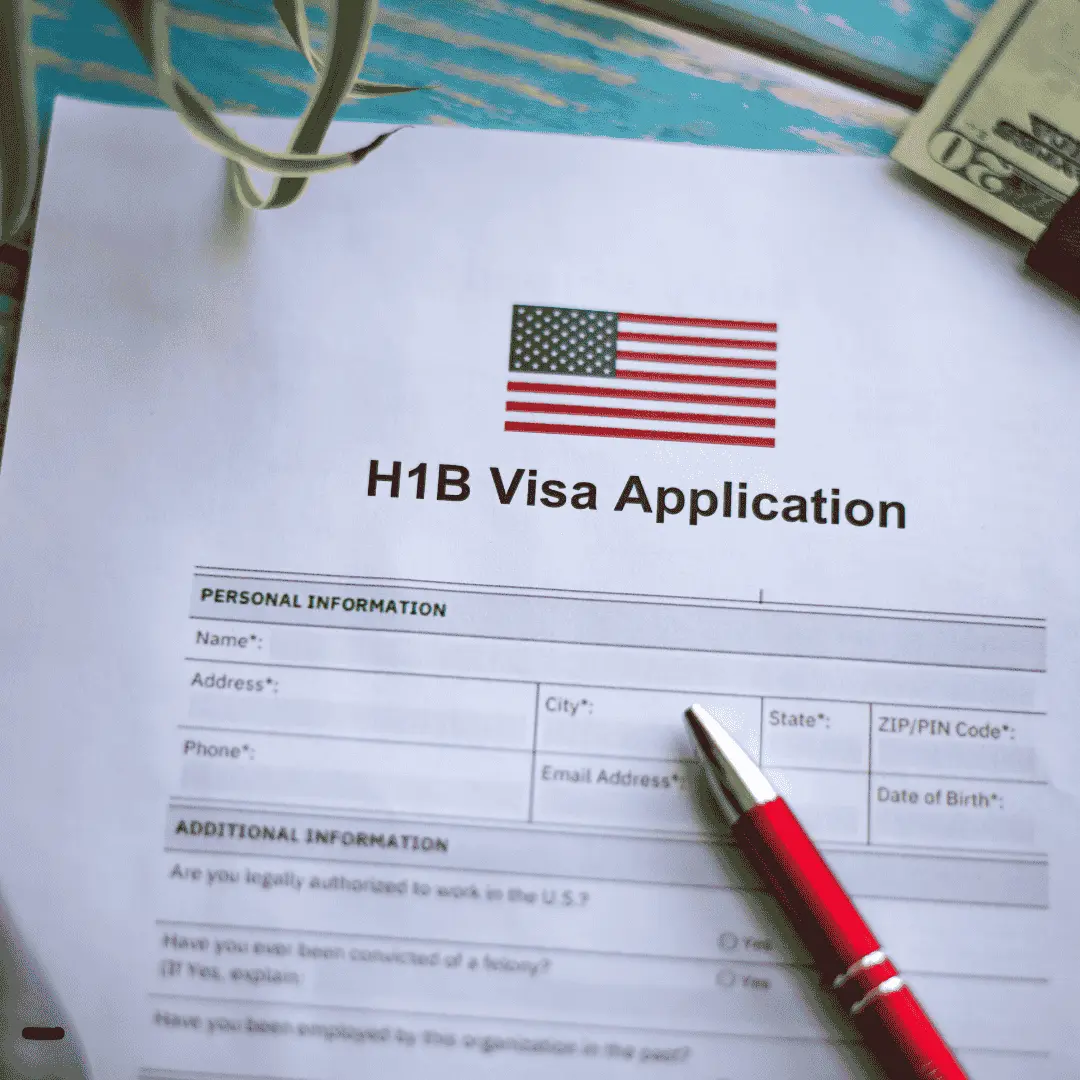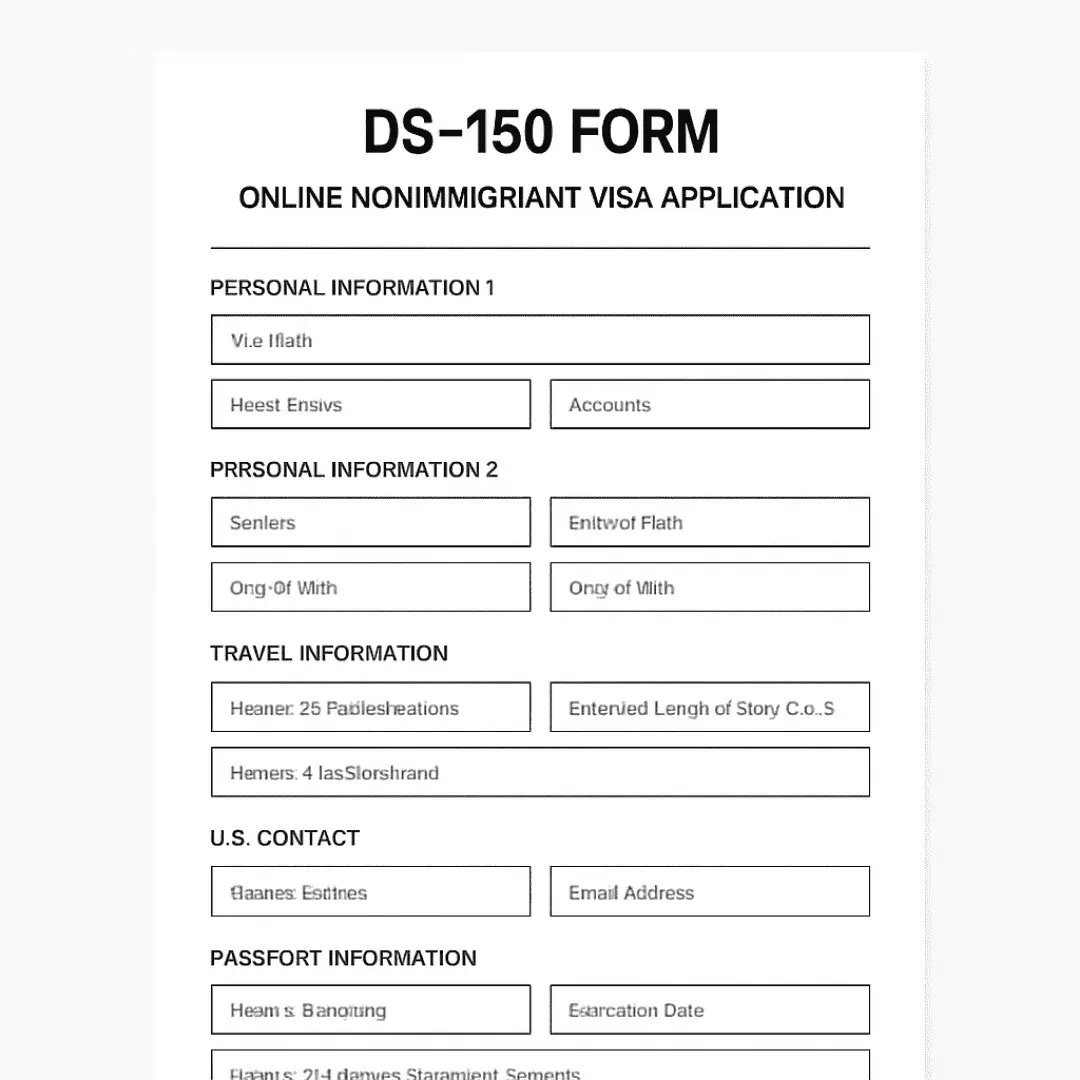Getting a visa to the United States can be fun and a lot of fun, but at the same time, stressful, especially for students aspiring to attend universities in the United States of America. Yet the application for a visa is also fraught with nuances, and many people fail to get the visa they applied for. The reasons for the refusal of a visa could be many, and knowing why they can reject your application in case you applied for a student visa, a tourist visa, or a business visa is very essential so that you can do the needful to get it right the next time. In this blog, we will discuss some of the most frequent causes of rejection of your US visa application and some tips that would help you avoid them.
Incomplete Application Or Lack Of Documentation.
Lack of proper documentation or missing documents is the leading cause of visa rejection in the United States. For you to be allowed entry into the US by the US Consulate, you are offered a list of documents that will prove your identity, your financial situation, and your reason for intending to visit the country. If any of the information that may be required is not provided or any supporting document is missing, the application will be rejected.
Common Documentation Errors:
- Misinformation on the passport
- Lack of balance sheets or other necessary financial documents
- Absence of acceptance letter from a University in America for student visas
- Lack of forms or unanswered questions
How to Avoid:
Make sure that every document and application form that you will fill out is reviewed carefully. Go over your visa application and documents twice or three times, and if there is still doubt, seek professional advice.
Lack of Affiliation with the Home Country
The fundamental requirement for the majority of American visas, such as tourist and student visas, is to demonstrate your willingness to leave America and go back to your home country once you are done with your visit. The examining authorities, particularly the Visa officers, are also interested in finding out whether the applicants have plans to overstay in the country and become illegal immigrants. Otherwise, you risk to encounter difficulties with your visa; the officials might doubt your connections to your home country.
Examples of Strong Ties Include:
- A secure form of employment or enterprise in your country of origin
- Possession of a house or a piece of land
- Kinship (immediate, including the spouse or children).
- Enrollment in educational programs or obligations
How to Avoid:
Ensure that your employer understands that you have valid reasons to return home after the visa terms are over. These could include employment contracts, family responsibilities, or property ownership documents.
Lack of funds
The third frequent cause of refusal of a US visa is the lack of evidence of the applicant’s financial solvency. When applying for a student visa, one is supposed to prove that he or she has the financial capacity to support tuition fees and other expenses within the period of his or her study in the US. See, for instance, ‘ For tourists or business purposes, visa, applicant must show that he has enough funds to meet his expenses for the period of his stay in the US without working illegally.
Possible Financial Pitfalls:
- Bank statements showing low account balances
- Lack of sufficient documentation of sponsorship (where relevant)
- No valid financial affidavits
How to Avoid:
Collect and provide recent bank statements of the candidate, his/her scholarships/sponsorship documents, as well as documents to state one’s financial situation in a bank and, if necessary, an affidavit.
Health or Security Standards, not Met
The US Department of State investigates all visa applicants, and any health or security problem leads to visa denial. Some diseases, especially those that are infectious, are likely to cause denial. Also, any criminal record, history of visa abuse, or engaging in activities regarded as a threat to national security leads to visa rejection.
Health and Security Concerns:
- Communicable diseases like Tuberculosis
- As mentioned earlier, criminal convictions (even for minor offenses) can be examined in the context of assessing a candidate’s suitability for a given job.
- Participation in unlawful acts or relationships with terrorists
- Previous visa overstay or immigration offence
How to Avoid:
Ensure all your health records are updated, and you do not have any criminal record or any outstanding visa complications. Be truthful when filling out the application, and use an immigration lawyer if you have had any legal or immigration issues in the past.
Absence of Goals or Aim
In particular, a visa officer will have a tendency to refuse a visa if the client is unable to explain why they wish to visit the US. For instance, students applying for student visas need to justify the program they wish to take in the USA and how this program is relevant to their chosen career path. If the officer suspects that the purpose of your visit is uncertain or you are using a student or tourist visa as a way to immigrate, you may be rejected.
Issues with Intention:
- Vague or unclear answers during the visa interview
- Lack of connection between your educational background and chosen course of study
- Inconsistent statements in your application and interview
How to Avoid:
When going for the visa interview, be sure to have clear and truthful responses to questions concerning the trip plans. Correct all your documents (your Statement of Purpose, Letters of Intent, particularly for your student’s visa) to be consistent with your declared intention.
Unfavorable Visa Interview
The visa interview is a crucial factor that will decide whether your application will be accepted or rejected. Today, many candidates fail because of poor performance during the interview process. Sweating, stammering, or just giving wrong or indecisive answers may cause the consular officer to develop some doubt.
Common Interview Mistakes:
- Providing inconsistent or rehearsed answers
- Appearing overly nervous or unprepared
- Failing to explain your intent to return home
- Contradicting information provided in your application
How to Avoid:
Cope with basic visa interview questions in a simple, direct and affirmative manner. Do not panic; be honest and verify that your answers match the content of your application.
Previous refusals of visas or violations
If you ever had your US visa application rejected or violated the terms of a previous visa, your current application will also suffer. May be expected to explain changes in circumstances since previous visa application and refusal or violation of visa conditions; may be able to provide information about past visa history to the visa officer; and may have an application rejected if the visa officer feels that the applicant has not rectified the main reasons that led to the refusal or violation of visa terms.
Possible Violations Include:
- Overstaying a previous US visa
- Unauthorized work while on a tourist or student visa
- Applying for a new visa while an immigration petition is pending
How to Avoid:
When you have had a refusal or violation in the past, you should attach a document showing that the problem has been corrected. Either do it yourself or seek the help of an immigration consultant to bolster your case.
Having Over-Optimized or Unachievable Goals
Lastly, visa officers may reject an application in case she or he feels that the applicant’s plans to undertake in the US are unrealistic. It is especially true when the applicants cannot sufficiently clarify how they would get there or how they will finance their stay in the United States.
Examples of Unrealistic Plans:
- Studying the probability of working while being on a tourist visa
- Failure to set realistic goals about how soon you could become self-reliant
- Lying about a false academic or professional profile
How to Avoid:
This should be a realistic schedule with goals outlined for the time one will spend in the US, whether as a student, tourist, or business. Be ready to give more information in an interview when you will be given a visa.
Here are People Also Ask (PAA) :
1. What are common reasons for U.S. visa rejections?
Common reasons for U.S. visa rejections include:
- Incomplete Application or Lack of Documentation: Missing or incorrect information can lead to denial.
- Failure to Demonstrate Strong Ties to Home Country: Inability to prove intent to return can result in rejection.
- Insufficient Financial Support: Lack of evidence for financial self-sufficiency may cause denial.
- Previous Immigration Violations: Past violations can negatively impact the application.
- Inadequate Preparation for the Visa Interview: Unclear or inconsistent answers can lead to rejection.
2. How can incomplete documentation affect my U.S. visa application?
Incomplete or incorrect documentation is a leading cause of visa rejection. Missing documents or inaccuracies can raise concerns about the applicant’s eligibility and intentions. It’s crucial to thoroughly review all application materials and ensure all required documents are accurate and complete.
3. Why is demonstrating strong ties to my home country important for a U.S. visa application?
U.S. immigration law requires visa applicants to prove they have strong ties to their home country, indicating they will return after their temporary stay. Failure to demonstrate such ties can result in visa denial under Section 214(b) of the Immigration and Nationality Act.
4. How does insufficient financial support lead to U.S. visa rejection?
Applicants must demonstrate they have sufficient funds to cover their expenses while in the U.S. Inability to provide evidence of financial stability may lead to a visa denial under the grounds of becoming a public charge.
5. Can previous immigration violations impact my U.S. visa application?
Yes, prior immigration violations, such as overstaying a previous visa or unauthorized employment in the U.S., can adversely affect your current visa application. Such history may lead to ineligibility under various sections of the Immigration and Nationality Act.
For more detailed information on U.S. visa rejections and how to avoid them, visit University Hub.
Conclusion
The first step towards avoiding US visa rejection is understanding why US visa applications get rejected in the first instance. The process is not easy, but proper preparation, well-organized documentation, and a good interview can greatly increase the likelihood of approval. Taking help from a US student visa consultant in India will be a great idea. Aspiring Indian students heading to the US will find it useful to get services provided by University Hub, which assists in admission and visa information for students from India and other countries. University Hub offers students access to the most popular and prestigious universities in the United States, so students’ educational process will be as comfortable as possible. For information about study opportunities in the USA, visit us or contact us at +1 502-930-2702 or +91 6387149133.




